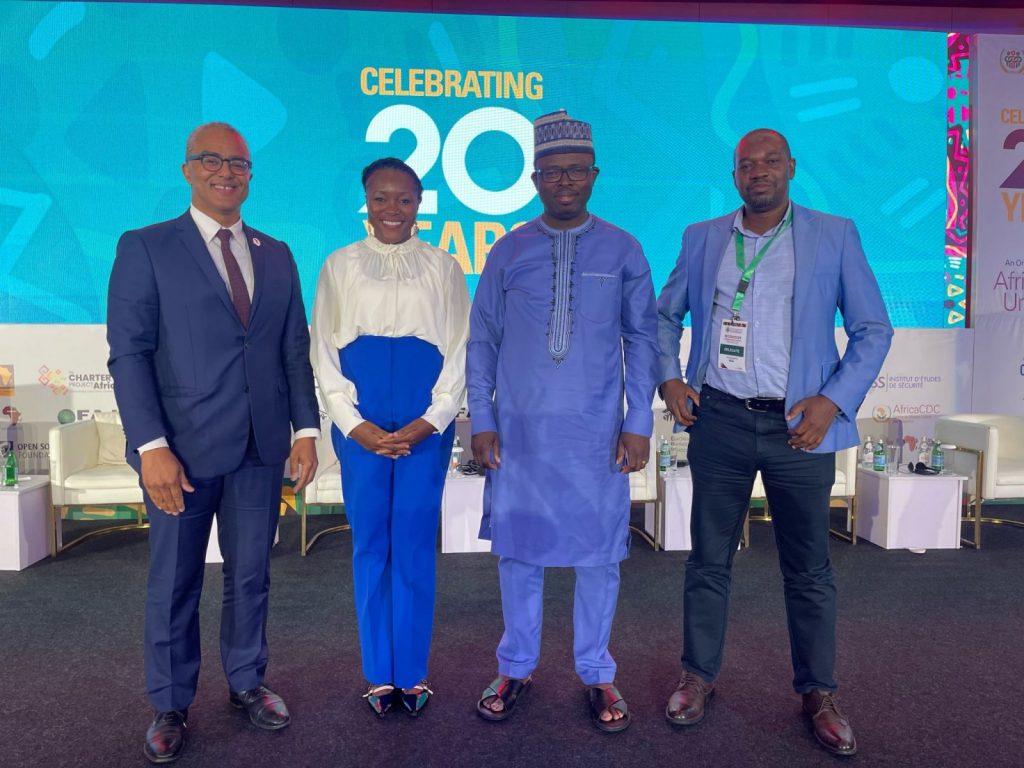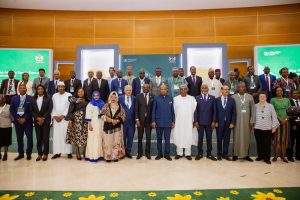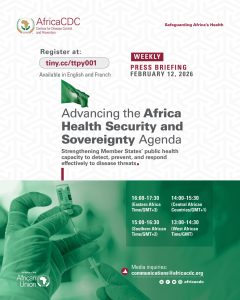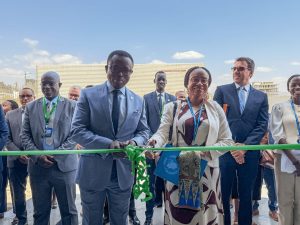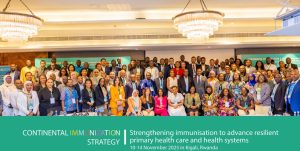On July 19, 2024, Africa CDC partnered with the African Union’s Economic, Social, and Cultural Council (AU ECOSOCC) to facilitate discussions on the role of technology in enhancing health resilience and democracy in Africa. During the second day of the African Union ECOSOCC Citizens Forum in Accra, two-panel discussions were featured — the first focused on AI-powered primary care strengthening in Africa and the second on creating an enabling environment for AI in healthcare.
“Primary care is the cornerstone of robust healthcare systems, providing essential services such as preventive care, diagnosis, and treatment of common illnesses. In rural and underserved communities in Africa, these services are often hampered by a lack of resources and trained personnel,” said Dr. Raji Tajudeen, Africa CDC’s Acting Deputy Director. “Digital transformation brings the tools to fundamentally reimagine healthcare and public health to maximize quality, accessibility, efficiency, and affordability for our citizens. We can leapfrog traditional healthcare development stages, empower patients, improve operational excellence, and shift from curative to wellbeing systems.”
The panels discussed how AI can address these challenges by improving diagnostic accuracy, optimizing resource allocation, and enhancing health education and outreach. “AI can help in predicting disease outbreaks, managing patient data, and providing remote consultations, which are crucial for rural areas,” said Huguette Diakabana, a lecturer on digital health at Harvard Medical School, explaining AI’s transformative potential in primary care.
The potential benefits of AI in reducing health inequities also received attention. “AI can play a critical role in bridging the gap in healthcare access by providing tailored solutions to underserved communities. It ensures that quality care is available to all, regardless of location or socio-economic status,” Diakabana said.
Implementing AI solutions in primary care faces specific challenges. “The key barriers include inadequate digital infrastructure, insufficient investment in technology, a critical shortage of skilled professionals to operate AI systems, regulatory hurdles, and issues with interoperability of systems,” said Dr. Tajudeen. “We need to align, learn, and scale up from the many scattered projects across the continent to achieve real digital transformation,” he said, adding that addressing these challenges requires a concerted effort from all stakeholders, including governments, NGOs, and private sector partners. “At Africa CDC, we are committed to driving this collaborative approach.”
The partnership between Africa CDC and ECOSOCC holds significant potential for advancing public health across Africa. ECOSOCC’s extensive network of Civil Society Organizations (CSOs) can aid in policy advocacy and awareness, ensuring communities are well-informed and active in health promotion. Their grassroots connections could mobilize communities for public health interventions, reaching even remote areas. ECOSOCC is positioned to provide valuable feedback on the effectiveness of Africa CDC’s programs, facilitating continuous improvement. The council also enhances capacity-building initiatives for CSOs, promoting sustainable development by building local expertise. “Together, we could enhance the resilience of our public health initiatives, leveraging combined networks to amplify our impact,” Dr. Tajudeen said.

